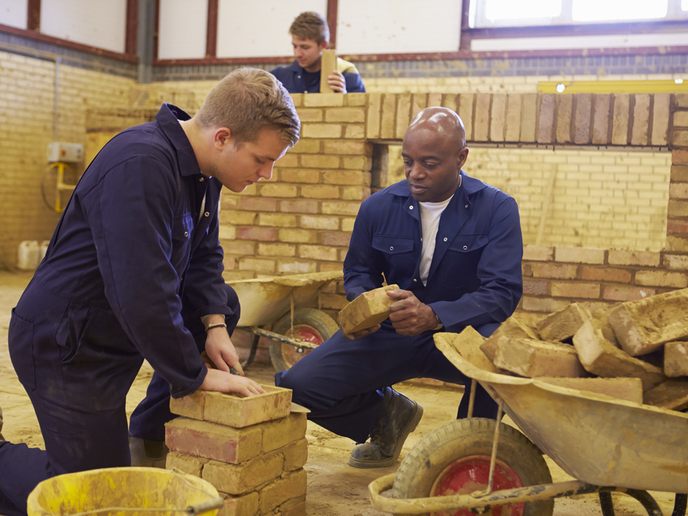Promoting hands-on energy efficiency training
The Building Knowledge Hubs form part of a growing international network of training centres that combine theoretical lessons with practical hands-on exercises. The network also aims to increase interest in and awareness of nearly zero-energy buildings (NZEBs) and stimulate market demand for optimal energy efficiency in new buildings and renovations. “New NZEB standards are being developed at the national level,” explains Train-to-NZEB (The Building Knowledge Hubs) project coordinator Dragomir Tzanev, from the Centre for Energy Efficiency – EnEffect, Bulgaria. “Meeting these new standards requires changes in how both designers and construction workers are trained. We also need to change the way we think about buildings, and this has to trickle down to end users. Consumers are the real change agents in this process, as unless there is no demand from the market, there will be no demand for training.” At the end of the 3-year project, there were seven Building Knowledge Hubs in Bulgaria, the Czech Republic, Romania, Turkey and Ukraine that are putting Train-to-NZEB’s courses into practice. The aim at the outset was to train 90 trainers in total, a target that has been reached. “We also reached our aim of training 2 400 construction workers through 112 courses and we’ve also successfully trained 614 qualified professionals, such as designers and engineers, through 40 individual courses,” says Tzanev. “On top of that, we’ve also trained 894 specialists with decision-making functions through 36 individual courses.” Whilst these numbers are excellent and deserve to be celebrated, Tzanev expresses his particular pride about the very impressive work that the training centres in Turkey and Ukraine have been carrying out. Hands-on experience The now completed Train-to-NZEB project began in 2015 with a preliminary analysis of the training gaps that exist, and how these could best be addressed. Leading research and training institutions from Germany (Passive House Institute) and Ireland (Passive House Academy and Limerick Institute of Technology) were identified as ideal partners for transferring knowledge and experience. “Ireland has a lot of experience in combining standard classroom training with practical courses,” says Tzanev. “Hands-on experience is a really important part of the learning process.” Both Germany and Ireland also have well-established certification schemes for both designers and tradespeople. “Offering a variety of training courses will enable training facilities to really offer something different to the market and meet the diverse training demand,” adds Tzanev. Training courses tailored to builders, designers or end users focus on basic concepts such as energy saving, NZEB and the implementation of new building standards and offer practical experience with innovative materials and tools. Expanding network Tzanev hopes that the Train-to-NZEB network concept will continue to be further developed and expanded. The EU-funded project Fit-to-nZEB extended the network of training centres to Croatia, Greece and Italy, where the focus was on energy-efficient building renovation. “The goal here was to offer training programmes at all levels, from high school leavers to professionals,” Tzanev says. “This project builds on the Train-to-NZEB idea of sharing and developing programmes together, and it really shows that we are building a culture of exchange. This is the only way we can improve and ultimately meet the demands of customers.” As their profile rises, Tzanev hopes that network training facilities will begin to take on more consultancy work on actual construction projects. He also predicts that blended learning – a combination of online distance learning with hands-on experience at training centres and classroom learning – will be an important fixture in the future. However, as Tzanev says: “Training for professionals working in remote areas is only possible through good distance learning. By engaging with as many stakeholders as possible and broadening our training offer, we can ensure that our model is sustainable.”
Keywords
Train-to-NZEB, energy, efficiency, NZEB, buildings, construction, designers, builders, training



